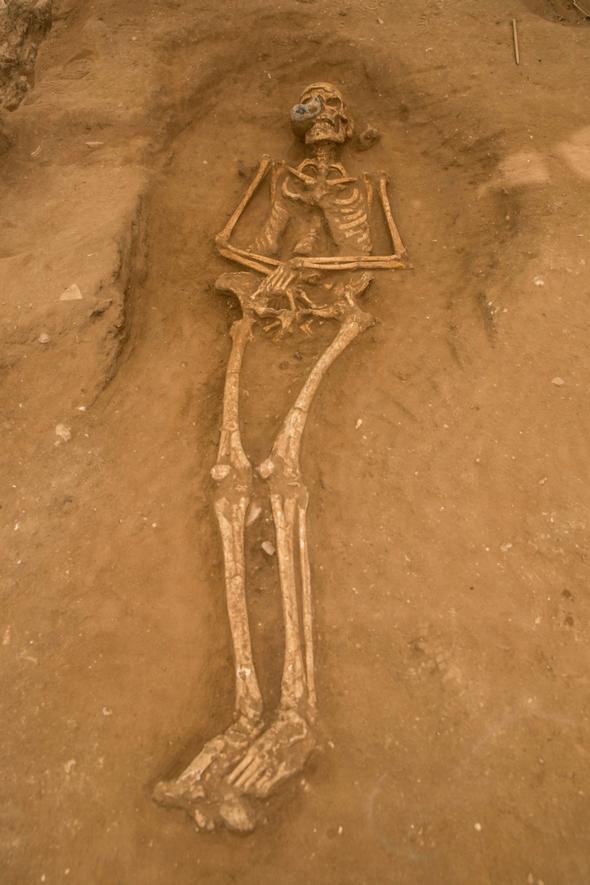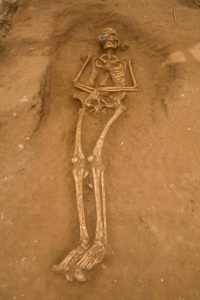An unrivaled discovery on the southern coast of Israel may enable archaeologists to finally unravel the origins of one of the most notorious and enigmatic peoples of the Hebrew Bible: the Philistines.
The discovery of a large cemetery outside the walls of ancient Ashkelon, a major city of the Philistines between the 12th and 7th centuries B.C., is the first of its kind in the history of archaeological investigation in the region. (Read more about ancient Ashkelon.)
While more than a century of scholarship has identified the five major cities of the Philistines and artifacts distinctive to their culture, only a handful of burials have been tentatively identified.
Simply put, archaeologists have found plenty of pots, but very few people.
An adult burial in the Ashkelon cemetery features a small juglet, which most likely once held perfume. The juglet was placed near the nose of the deceased at the time of interment.
Photograph by Tsafrir Abayov for the Leon Levy Expedition to Ashkelon
Now, the discovery of a cemetery containing more than 211 individuals and dated from the 11th to 8th centuries B.C. will give archaeologists the opportunity to answer critical questions regarding the origin of the Philistines and how they eventually assimilated into the local culture.


